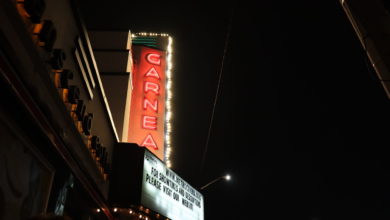 Lily Polenchuk
Lily PolenchukClearly, higher education is expensive. Despite multiple student protests, the University of Alberta has annually increased tuition for the past five years. On the bright side, the cost is a worthy investment into your future employability. Or is it?
Recently, companies have been less and less inclined to hire university graduates. A survey from Express Employment Professionals (EEP), an employment agency, showed that only 43 per cent of Canadian companies planned to hire recent graduates in late 2023. According to Brent Pollington, a franchise owner with EEP, the issue lies in the lack of “relatable, career-specific experience.” But if education isn’t enough to get hired, why are students spending so much time and money on it? If the U of A wants its degrees to be valuable, it needs to revamp its approach to higher education and offer more opportunities for work experience. Otherwise, it might just be setting students up for failure.
In fact, the average income for undergraduates in Alberta is only about $54,791. Meanwhile, tuition and housing usually cost around $27,000 per year for domestic students living on-campus at the U of A. So in a four-year program, these students might end up paying $108,000 on education and accommodations. That’s twice the annual income most will make after graduating. The situation is even worse for international students who have to pay a total of $202,899 for a general arts degree while living on-campus. Not to mention, the average student loan debt is $28,000, which takes most people 10 years to pay off. That’s way too long to see a return on your investment.
Of course, that’s assuming that your degree actually helps you find a job. In the United Kingdom (U.K.), 50 per cent of graduates are unemployed or work in jobs that don’t require a degree. Similar problems are arising in Canada where students and new graduates are driving the unemployment rate higher. Surya Nareshan, a Canadian graduate in engineering physics, said he kept losing out to someone with “five years of experience or [who] has a master’s degree.” How can he and other graduates like him compete?
Unfortunately, there’s a growing skills gap between a new graduate’s capabilities and the employer’s needs. In recent years, companies have turned to skills-based hiring. This process focuses less on degrees and more on hiring those who have specific skills. With less experience and the oversaturated job market, new graduates don’t bring a lot to the table. This shift in hiring shows that the current format of higher education is becoming less and less important.
But, who has the time to get work experience? We all know how difficult it can be to work and keep up grades at the same time (which we might need for scholarships). If experience will outweigh your grade point average anyways, then you might as well not try to get an A+ in your class. Or not bother with university at all.
To give it credit, the U of A does offer co-op programs in several faculties and through other work experience initiatives. However, students have struggled to find jobs even within these programs. When these programs cannot guarantee work, it makes getting work experience before graduating even more difficult. If our job background is more important than our actual degree, why isn’t the U of A expanding these programs, making them more easily accessible, or integrating them into regular courses?
Unfortunately, the university is centred around academic coursework, rather than actual work experience. While that educational structure may have worked well in the past, it’s not cutting it anymore. The U of A needs to innovate and experiment with different types of learning which integrate on-job training. Otherwise, students leave university with a lot of debt and at a severe disadvantage.




